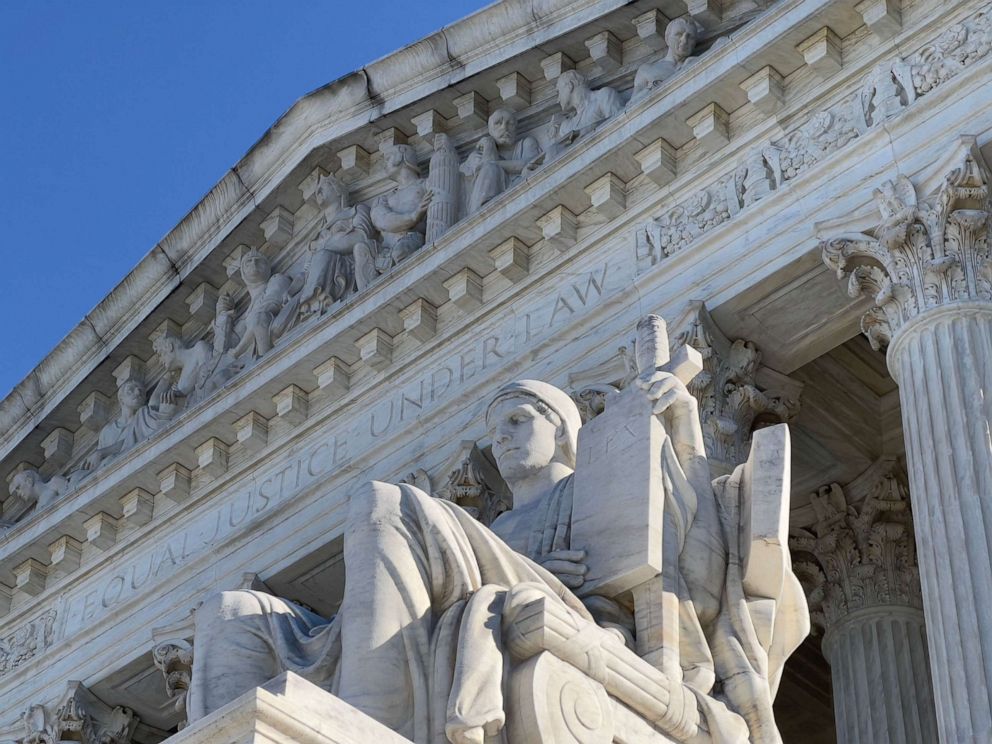Tax dollars for religious school tuition? Supreme Court conservatives warm to the idea
Maine says excluding religious schools from tuition aid is constitutional.
Two families from Maine asked the U.S. Supreme Court on Wednesday to expand taxpayer support for religious schools by requiring a state tuition assistance program to include sectarian as well as nonsectarian institutions.
The case, which has been closely watched by school choice advocates, could significantly expand religious liberties and clear the way for broader public support for religious education. Opponents say it risks unconstitutional entanglement of church and state.
During nearly two hours of oral arguments, the court's conservative majority of justices appeared highly receptive to the families' claims that Maine has discriminated on the basis of religion, in violation of the First Amendment, by disqualifying schools that "promote" a specific faith and teach subjects "through the lens of their faith."
"Religious discrimination is religious discrimination," said attorney Michael Bindas, representing the families. "Religious schools, after all, teach religion just as a soccer team plays soccer and a book club reads books. It's only because of religion that they are excluded."
Maine argues that its tuition-aid program is meant to subsidize a "rough equivalent of a public education" and its criteria are religiously neutral -- discriminating not on the status or affiliation of the school but what it teaches.
"Maine has determined as a matter of public policy that public education be neutral," said Maine deputy attorney general Christopher Taub. "[The families] are not being discriminated against."
Since nearly half of Maine public school districts do not have their own schools, many either contract with other districts to provide education to residents or they provide tuition payments -- roughly $11,000 a year -- for "the approved private school of the parent's choice at which a student is accepted."
Of the roughly 180,000 school children in Maine, only about 5,000 attend private schools using state tuition aid. The plaintiff families want to send their children to Christian schools that overtly advocate religious beliefs and were excluded from the program.

The Supreme Court has said that states cannot use tax dollars to explicitly promote religion, nor can they target a religion or discriminate based solely on religious status. The gray area in between the two rules is where this case will be decided.
Chief Justice John Roberts suggested any state assessment of religious teaching in order to determine qualification for tuition aid would be inherently unconstitutional discrimination.
"We have said that that is the most basic violation of the -- the First Amendment religion clauses, for the government to draw distinctions between religions based on their doctrine," Roberts said.
Justice Brett Kavanaugh said the "neutral position" would be for the state to not consider religion at all in determining a school's eligibility.
"Why isn't it treating people neutrally to tell them you're all equal citizens without respect to your religion, and so, too, all the schools that are accredited are equal without respect to their religion, whether you are secular, Catholic, Jewish, what have you, you're all going to be treated equally?" he asked.
The court's three liberal justices took a more critical approach, highlighting potential "strife" among citizens who oppose their tax dollars underwriting religious indoctrination and social values with which they may strongly disagree.
"The very point is they teach all subjects through the lens of religion," noted Justice Sonia Sotomayor.
Justice Elena Kagan insisted states should be allowed to make their own judgments on funding for religious schools based on local views.
"Why does the state have to exercise -- have to subsidize the exercise of a right?" Kagan asked. "Essentially what Maine is saying here is like, all well and good if a locality or if a state wants to do this, but we weigh the interests differently, and shouldn't we be allowed to weigh the interests differently."
Bindas, arguing for the parents, insisted Maine's approach is discrimination that cannot stand.
"This absolutely discriminates against parents. It says you can get an otherwise available public benefit you are statutorily entitled to so long as you don't exercise a right that this Court recognized," he said. "And this Court should not allow that to stand."
The court is expected to hand down a decision next spring.




